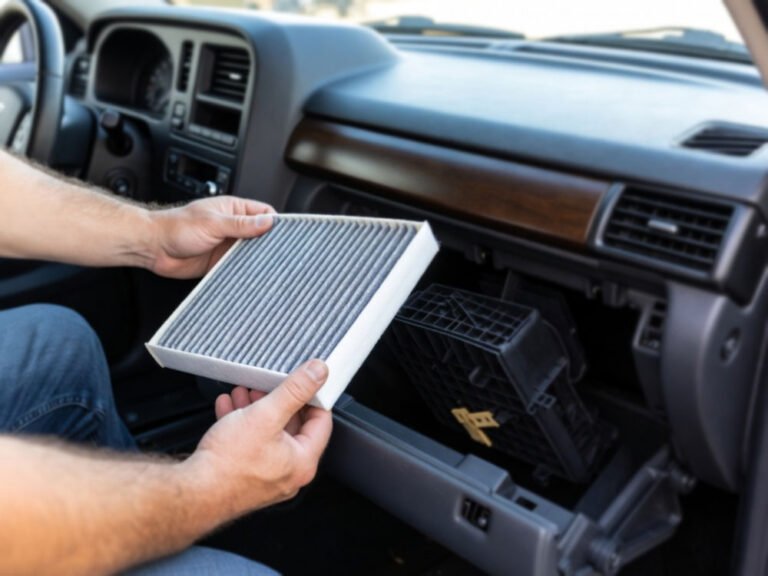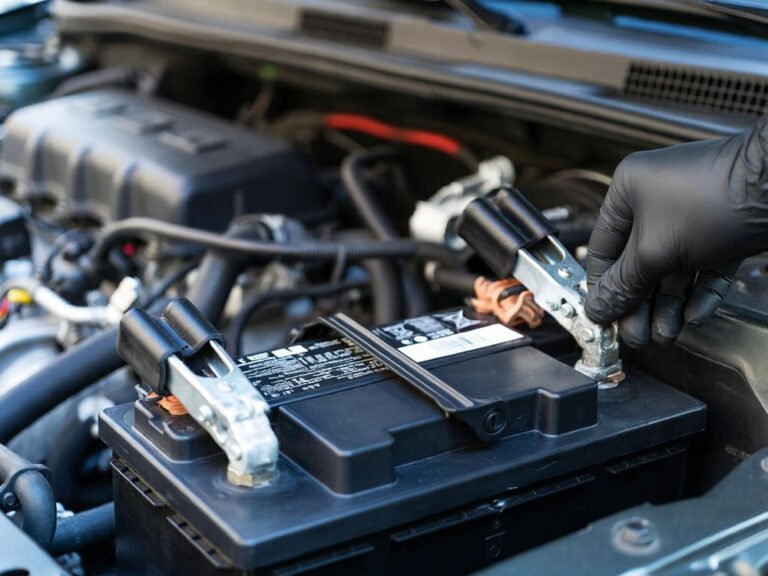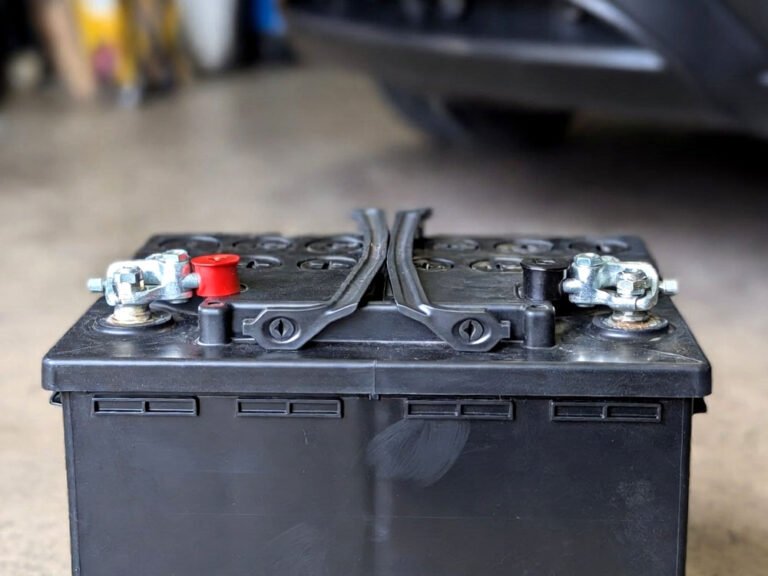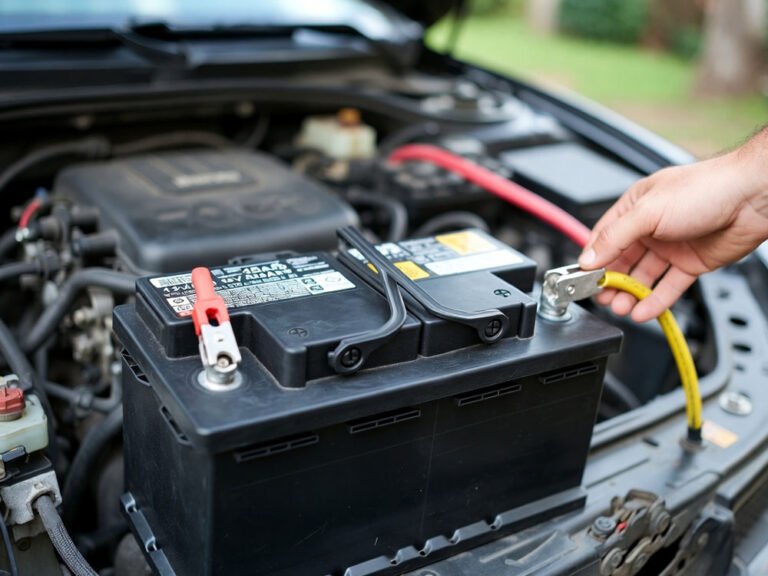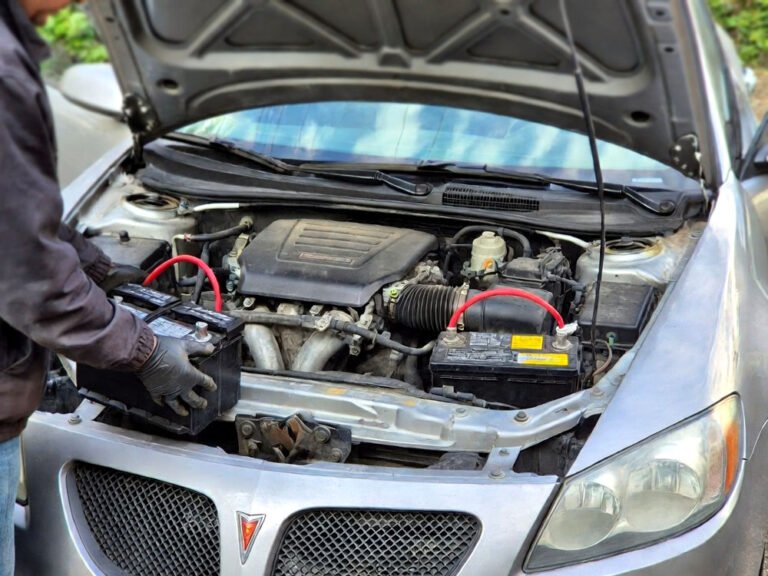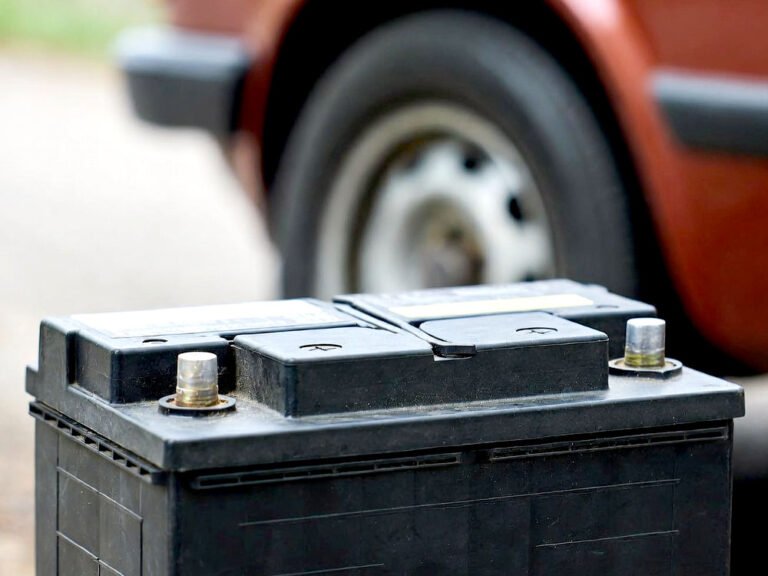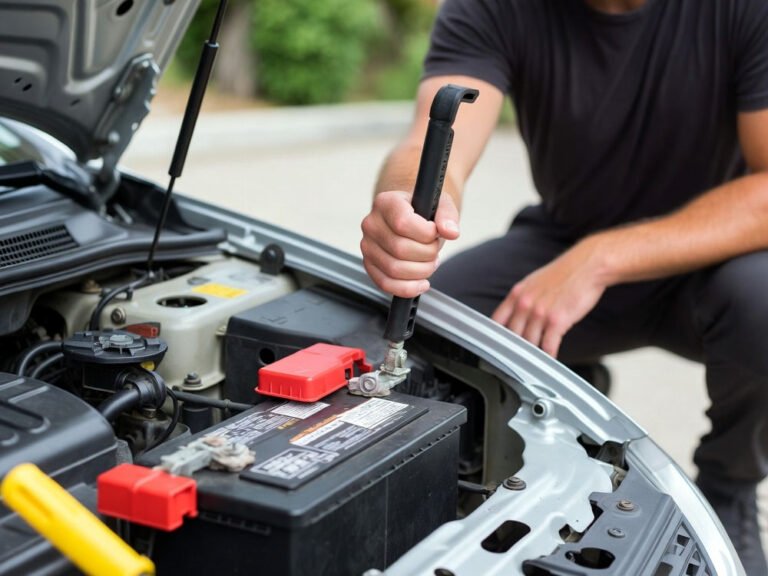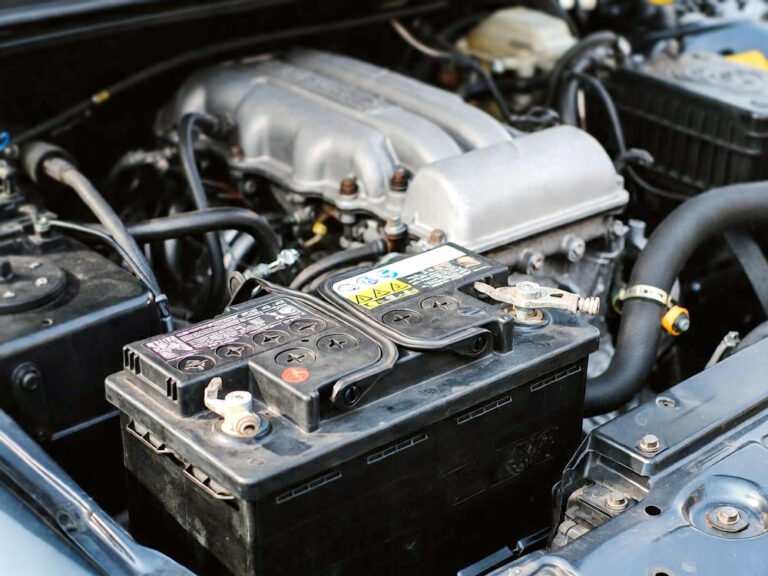To keep rodents out of the car engine, use deterrent measures such as sealing openings and removing attractants. Rodents in car engines can cause significant damage by chewing on wires and building nests, leading to costly repairs.
We will explore effective methods to prevent rodents from accessing your vehicle’s engine compartment. By implementing these measures, you can safeguard your car from rodent infestations and potential damage, saving you time and money in the long run. So, let’s delve into some practical steps to keep those pesky rodents away from your car engine.

Credit: www.amazon.com
Preventive Measures
Prevent rodents from damaging your car engine by implementing preventive measures such as sealing any entry points, keeping the engine area clean, and using rodent repellents.
Preventive Measures To Keep Rodents Out Of Car Engine
When it comes to protecting your car engine from unwanted guests, preventive measures play a crucial role. Taking proactive steps can help prevent rodents from turning your vehicle’s engine compartment into their cozy home. By following these preventive measures, you can safeguard your car and avoid costly repairs.
1. Keep Your Car Clean And Clutter-free
Your car’s engine compartment should be clean and free from any food particles, trash, or debris that can attract rodents. Regularly clean both the interior and exterior of your vehicle to minimize the risk of inviting these pests. Avoid leaving food or pet food inside your car, as this can tempt rodents to explore further.
2. Seal Potential Entry Points
Rodents can easily find their way into your car through small openings or gaps. Inspect your vehicle for any potential entry points and seal them off using appropriate materials. Focus on areas around the engine bay, such as gaps in the hood, damaged rubber seals, or openings around wiring harnesses. Utilize sealants or weatherstripping to ensure a tight seal, keeping rodents at bay.
3. Use Rodent Repellents
Protect your car’s engine by utilizing rodent repellents in and around your vehicle. These repellents come in various forms such as sprays, pouches, or ultrasonic devices. Mothballs and peppermint oil are known to be effective in repelling rodents. Place these repellents strategically near the engine compartment and other vulnerable areas to deter rodents from making your car their new home.
4. Install A Physical Barrier
Installing a physical barrier is an effective way to prevent rodents from accessing your car’s engine. Wire mesh or hardware cloth can be used to cover openings like air intakes, vents, or radiator grilles. Make sure the mesh is sturdy enough to withstand the gnawing attempts of small critters. By creating a physical obstacle, you can significantly reduce the risk of rodent infestation.
5. Regular Engine Maintenance
Regular engine maintenance is essential not only for the smooth operation of your car but also for keeping rodents away. Rodents are often attracted to cars with malfunctioning parts or overlooked maintenance issues. Inspect your vehicle’s engine regularly, checking for any signs of wear, leaks, or damaged wiring. Fix these issues promptly to minimize the chances of rodents taking advantage of vulnerable areas.
By implementing these preventive measures, you can protect your car’s engine from rodent infestations and avoid the frustration and expenses that come with it. Remember, prevention is the key when it comes to keeping rodents at bay from your vehicle.
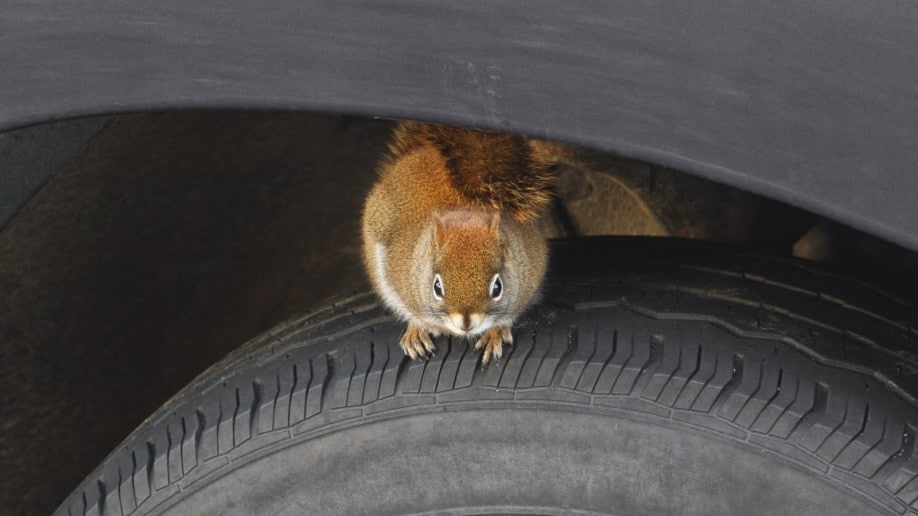
Credit: www.kbb.com
Signs Of Rodent Intrusions
Rodents can wreak havoc on car engines if not properly prevented. Look for signs of rodent intrusions like chewed wires and nests to ward off these pests.
Identifying Rodent Presence In Your Car
Discovering that rodents have invaded your car engine can be a frustrating experience. These nimble critters don’t only seek shelter in your home; they are resourceful enough to find their way into your vehicle as well. Identifying the signs of rodent intrusions early on is crucial to prevent further damage to your car’s electrical and mechanical systems.
Common Indicators Of Rodent Damage
When rodents make themselves at home in your car, they tend to leave a trail of evidence behind. Here are the common indicators that you should look out for:
- Chewed wires: Rodents have a voracious appetite for chewing and gnawing on wires, which can result in disruptions to your car’s electrical system. Look for frayed or chewed wires under the hood or near the engine.
- Nesting materials: Rodents like to build comfortable nests in warm and secluded areas of your car. Keep an eye out for chewed-up materials such as fabric, insulation, or even shredded paper that these critters may use for their nests.
- Droppings: Rodents have a habit of leaving their droppings wherever they go, including in your car. Rodent droppings are typically small and pellet-like, resembling grains of rice. You may find them in the engine bay or other hidden crevices.
- Unusual smells: If you notice a lingering, foul odor in your car, it could be a sign of rodent activity. Rodents tend to urinate and defecate in the areas where they nest, leaving behind an unpleasant smell.
- Scratching or rustling noises: Rodents are not quiet houseguests. If you hear scratching or rustling noises coming from your car’s interior or engine compartment, it’s a strong indication that rodents have made themselves at home.
- Damaged upholstery or insulation: Rodents may chew through upholstery or insulation materials to access the more secluded areas of your car. Look for small holes or gnaw marks on these surfaces.
Being vigilant and proactive in identifying these signs of rodent damage can help you take swift action to prevent further infestation and protect your car’s engine from potential harm.
Dealing With Rodent Infestations
Learn effective strategies for preventing rodents from infesting your car engine. Discover tips and techniques to keep these pesky pests out and protect your vehicle from damage.
Rodent infestations in car engines can cause significant damage, resulting in expensive repairs and inconvenience. However, by taking immediate actions and seeking professional help, you can effectively keep these pesky critters out of your vehicle and prevent further damage. In this section, we will discuss the steps you should take to deal with rodent infestations in your car engine.1. Immediate Actions To Take
When you discover signs of rodent infestations in your car engine, it is crucial to act promptly. Here are the immediate actions you should take:- Inspect the engine: Carefully examine your car engine for any signs of rodents, including chewed wires, nests, droppings, or foul odors. Look for damaged insulation or nesting materials in the engine compartment.
- Remove food sources: Eliminate any potential food sources for rodents, such as fallen fruits, crumbs, or garbage, from the surrounding area of your car. This will discourage rodents from nesting and seeking shelter in your vehicle.
- Seal entry points: Rodents can enter your car through small openings and cracks. Inspect your car thoroughly and seal any openings using steel wool, mesh screens, or rodent-proof tape. Pay special attention to areas where wires or pipes enter the engine compartment.
- Clean the engine: Use a vacuum cleaner or compressed air to remove any debris, nesting materials, or droppings from your car engine. It is essential to clean the engine compartment thoroughly to discourage rodents from returning.
2. Seeking Professional Help
If you are dealing with a severe rodent infestation or if you are unsure about handling the problem yourself, it is advisable to seek professional help. Professional pest control experts have the knowledge, techniques, and tools to effectively remove rodents from your car engine and prevent future infestations.When searching for professional help, consider the following:- Choose a reputable pest control company: Look for companies with experience in dealing with rodent infestations in vehicles. Check online reviews and ask for recommendations from friends, family, or your car dealership.
- Discuss your situation: Explain the nature of your rodent problem to the pest control professional. Provide them with any relevant information, such as the extent of the infestation and the signs you have observed in your car engine.
- Ask about prevention methods: Inquire about preventive measures that can be taken to minimize the risk of future rodent infestations. This may include recommendations on parking locations, installing rodent deterrents, or regular inspections.
- Follow their advice: Once the pest control professionals have treated your vehicle, carefully follow any instructions they provide to prevent reinfestation. This may involve maintaining cleanliness around your car, keeping surrounding areas clear of debris, or using specific rodent repellent products.

Credit: arizonapestsolutions.com
Frequently Asked Questions On How To Keep Rodents Out Of Car Engine
What Can You Put Under The Hood Of Your Car To Keep Rodents Out?
Install a metal mesh or rodent repellent tape under the hood of your car to deter rodents. These barriers help keep them out by preventing access to the engine compartment, protecting your vehicle from potential damage caused by chewing and nesting.
Why Do Rodents Get Into Car Engines?
Rodents get into car engines due to the warm and sheltered environment they provide. The engine’s wiring also attracts rodents for gnawing, nesting, and building their homes. Preventive measures can be taken, such as using rodent deterrents and sealing any entry points to the engine compartment.
How Do I Stop Rodents From Chewing My Car Wires?
To prevent rodents from chewing your car wires, try these steps:1. Keep your car in a rodent-proof garage. 2. Install wire insulation or rodent repellent tape on exposed wires. 3. Use peppermint oil or mothballs to deter rodents. 4. Park in well-lit areas to discourage nesting.
5. Keep your car clean and remove any food sources that may attract rodents.
Can You Spray Peppermint Oil Under The Hood Of A Car?
Yes, you can spray peppermint oil under the hood of a car. Peppermint oil can repel pests like rodents. Spray it in areas where they may hide, but be careful not to spray directly on sensitive engine parts.
Q: How Do Rodents Get Into Car Engines?
A: Rodents can access car engines by squeezing through small openings or climbing into the engine compartment.
Q: What Kind Of Damage Can Rodents Cause To Car Engines?
A: Rodents can chew on wires, hoses, and other components, leading to electrical issues, engine malfunctions, and costly repairs.
Conclusion
By following these preventive measures, you can effectively keep rodents from damaging your car engine. Regularly inspect and clean your engine bay, seal any entry points, use rodent repellents, and park your car in a safe area. Remember, early prevention is key to avoiding costly repairs and inconveniences caused by rodents.
Taking these actions will help keep your engine rodent-free and ensure your car runs smoothly for years to come.


